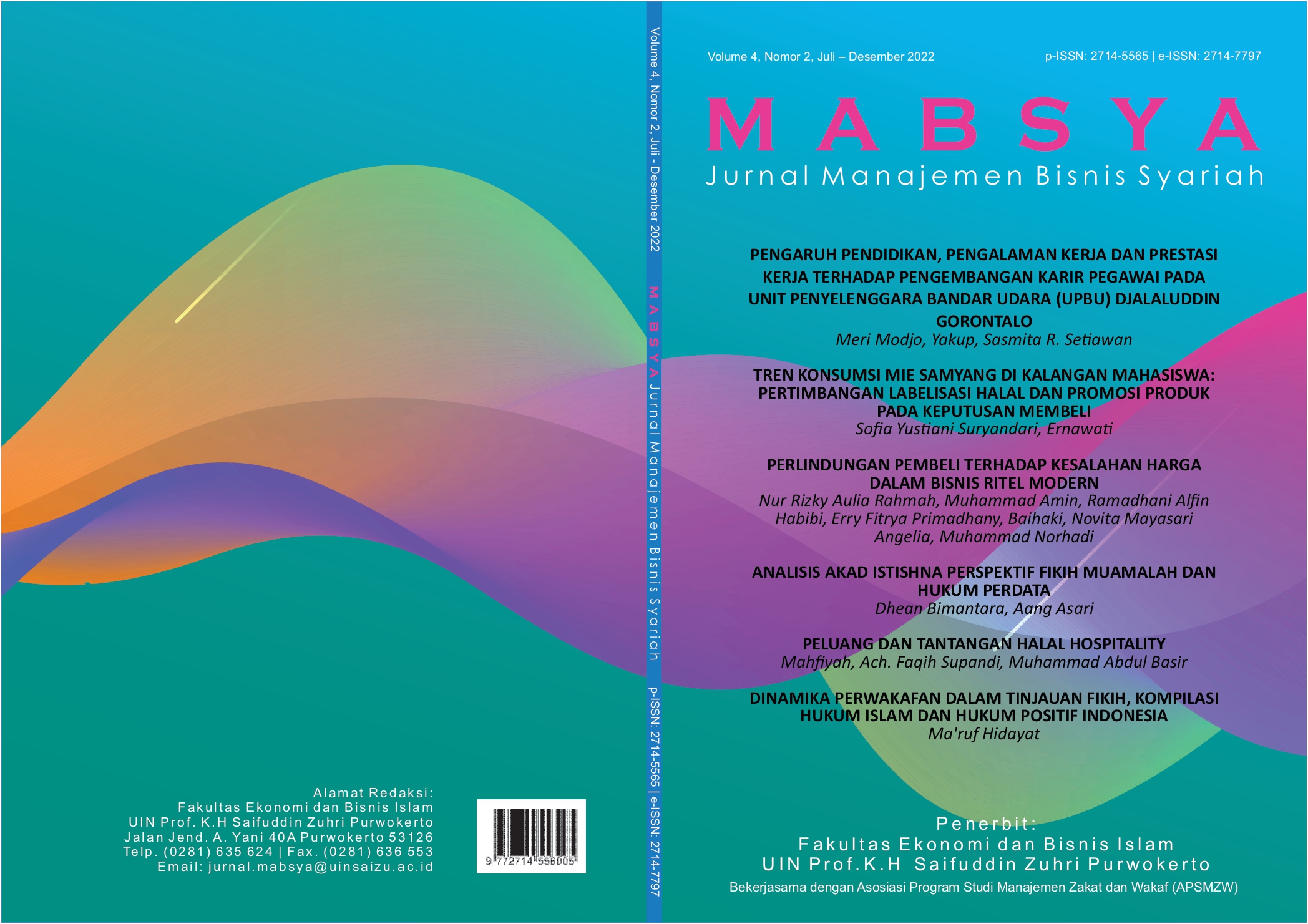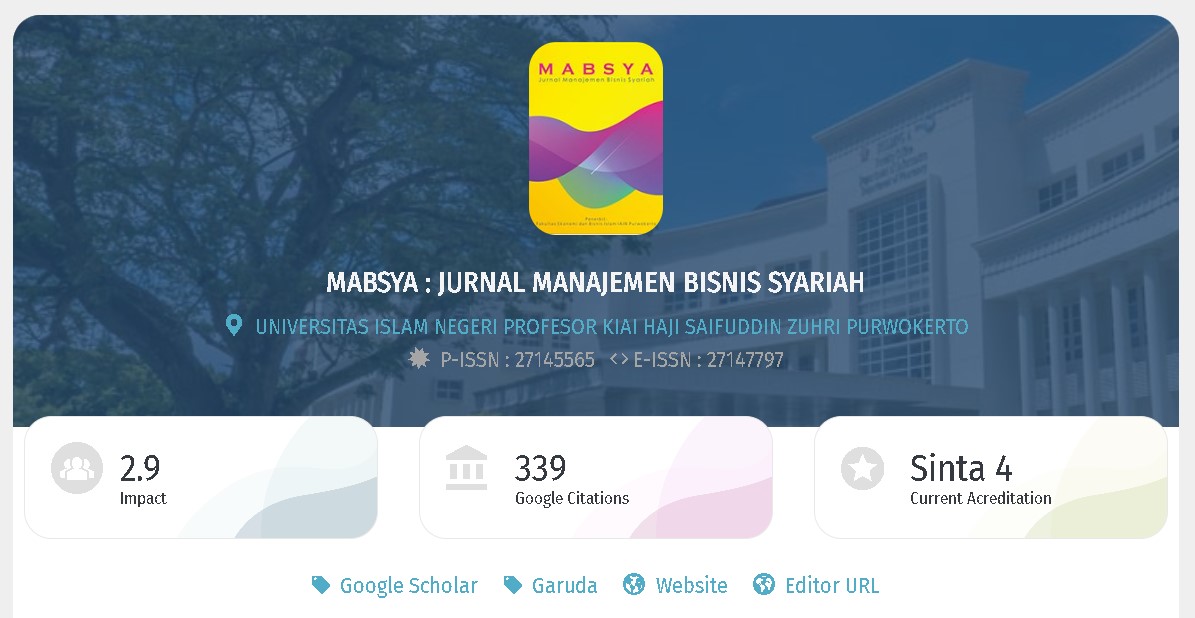Dinamika Perwakafan dalam tinjauan Fikih, Kompilasi Hukum Islam dan Hukum Positif Indonesia
DOI:
https://doi.org/10.24090/mabsya.v4i2.6972Keywords:
Keywords: Waqf, Jurisprudence, Legislation, IndonesiaAbstract
Departing from the community's understanding of waqf, it is still traditional that what is called waqf are immovable objects such as land, madrasas, grave lands and others. Whereas in this modern era, community waqf is to produce innovations that are more beneficial for the benefit, both in the economic, social and religious fields. So, this article aims to provide knowledge about the dynamics of waqf in the perspective of fikih scholars and the laws and regulations. The method used by the author to describe this article is search-based. This is done by the author by looking for references related to waqf material either in books or also in book literature. Then the authors look at and read in this article. In addition, the references used cannot be separated from positive legal regulations in Indonesia regarding waqf. The results of this study indicate that waqf in terms of fikih, the legal basis and its implementation in Indonesia have a complementary and mutually reinforcing relationship. From these findings, it can be said that waqf as an instrument of philanthropy has a strong foundation in the view of fikih and positive law in Indonesia in order to provide the public benefit for the community.References
Amir, A., Junaidi, J., & Yulmardi, Y. (2009). Buku: Metodologi Penelitian Ekonomi dan penerapannya. IPB Press.
Arofah, G. H. I. (2022). Analisis Fikih Wakaf dan UU Wakaf No. 41 Tahun 2004 terhadap Pengelolaan Wakaf Produktif. Jurnal Riset Hukum Keluarga Islam, 13–20.
Haq, F. (2017). Hukum Perwakafan di Indonesia (1 ed.). PT Rajagrafindo Persada.
Husniyah, P. Z. (2019). Literasi Wakaf Pada Masyarakat Untuk Memunculkan Minat Berwakaf (Studi Pada Badan Wakaf Indonesi A Jawa Timur). 88.
Kasdi, A. (2017). FIQIH WAKAF: Dari Wakaf Klasik Hingga Wakaf Produktif (U. Farida, Ed.). Idea Press Yogyakarta. http://eprints.stainkudus.ac.id/968/
Permana, Y., & Rukmanda, M. R. (2021). Wakaf: Tinjauan Fikih, Dasar Hukum, dan Implementasinya di Indonesia. Al-Kharaj : Jurnal Ekonomi, Keuangan & Bisnis Syariah, 3(2), Art. 2. https://doi.org/10.47467/alkharaj.v3i2.307
Rahman, M. F. (2009). Wakaf Dalam Islam. Al-Iqtishad: Jurnal Ilmu Ekonomi Syariah, 1(1). https://doi.org/10.15408/aiq.v1i1.2455
Saptono, I. T. (2019a). Peluang Dan Tantangan Wakaf Di Era 4.0. KOMITE NASIONAL KEUANGAN SYARIAH, 10.
Saptono, I. T. (2019b). Peluang Dan Tantangan Wakaf Di Era 4.0. 10.
Sesse, M. S. (2010). Wakaf Dalam Perspektif Fikih dan Hukum Nasional. 18.
Sudirman, S. (2009). Studi Perbandingan Obyek Wakaf Menurut Fikih Dan Undang-Undang Wakaf. Journal de Jure, 1(2).
Downloads
Published
How to Cite
Issue
Section
License
Copyright (c) 2022 Ma'ruf Hidayat

This work is licensed under a Creative Commons Attribution 4.0 International License.
Authors who publish with this journal agree to the following terms: Authors retain copyright and grant the journal right of first publication with the work simultaneously licensed under a Creative Commons Attribution 4.0 International License that allows others to share the work with an acknowledgment of the work's authorship and initial publication in this journal.

















